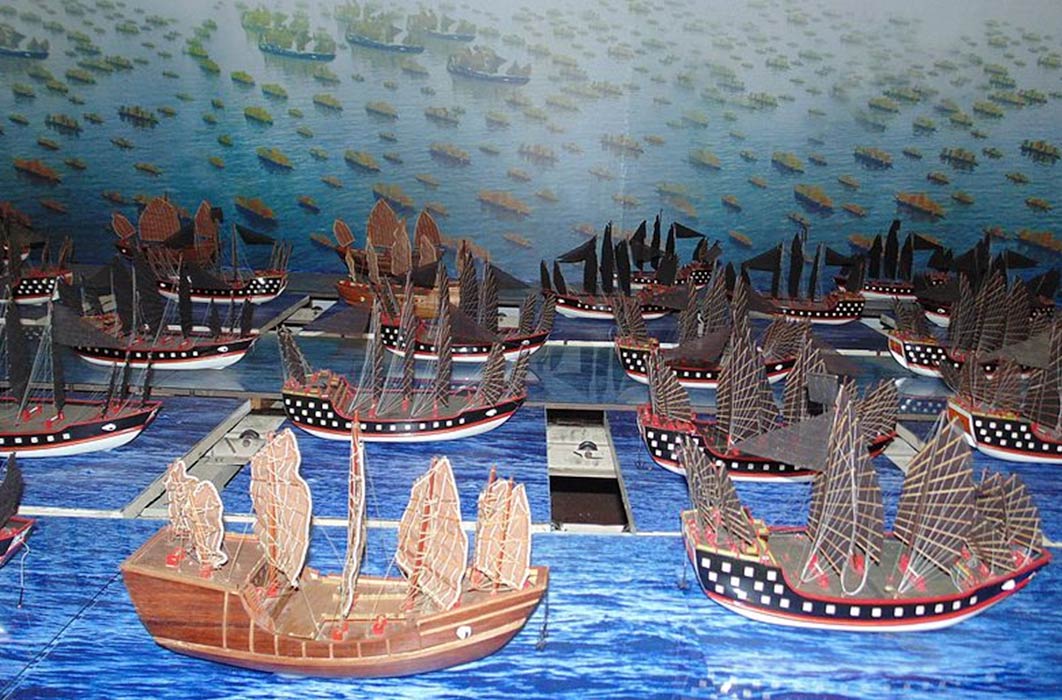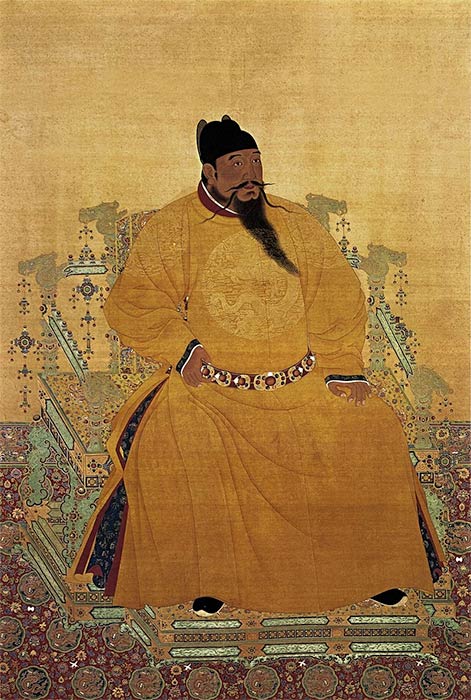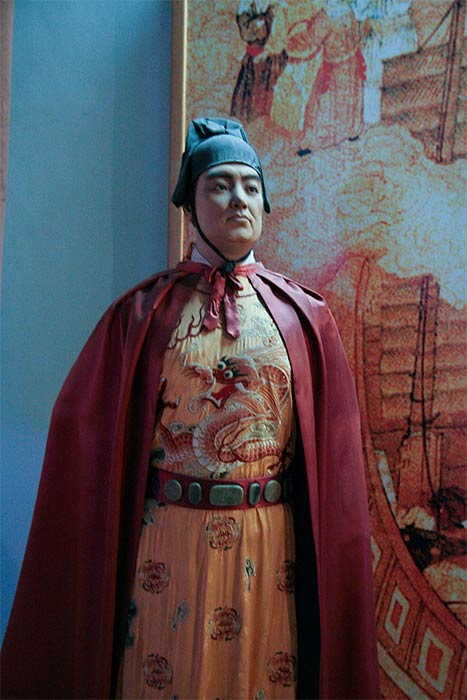
Zheng He, The Eunuch Who Became A Ming Dynasty Admiral
In 1127, the Song Dynasty (960 - 1279) lost control of northern China and, with it, access to the Silk Road and Persia's riches. After overthrowing the Song Dynasty and rising himself to the imperial Chinese throne in 1279, the Mongol emperor Kublai Khan had millions of trees planted and new shipyards built. Kublai Khan soon commanded a fleet of thousands of ships that he then sent out to attack Japan, Vietnam and Java. Although these naval offensives did not gain land, it gave China an opportunity to gain control of the sea lanes from Japan to Southeast Asia.

Japanese samurai boarding Mongol Yuan dynasty ships in 1281. (Public Domain)
Through Kublai Khan’s ambition, the Mongols afforded merchants new preeminence which led to a flourishing maritime trading. However, on land, the Mongols struggled to set up a stable system of government and gain the allegiance from the people they had conquered. After decades of internal revolt in China, the Mongol-led Yuan dynasty collapsed in 1368 and was succeeded by China’s Ming dynasty that went on to rule from 1368 to 1644. The Hongwu Emperor, the founding emperor of the Ming dynasty who reigned from 1368 to 1398, favored limited overseas contact with naval ambassadors charged with securing tributes from an increasingly long list of vassal states which included Brunei, Cambodia, Korea, Vietnam and the Philippines, thereby ensuring that lucrative profits did not fall into private hands.

Emperor Chengzu of the Ming Dynasty, commonly called the Yongle Emperor, sitting in the 'Dragon' chair. Taibei National Palace Museum (Public Domain)
The Yongle Emperor, the third Ming emperor, took the restrictive maritime policy even further by prohibiting private trade and pressing for Chinese domination of the South Seas and the Indian Ocean. The beginning of his reign saw the conquest of Vietnam and the establishment of Malacca as a new sultanate, ruling the entry point of the Indian Ocean which was an extremely strategic ruling position for China. The emperor planned to assemble a grand fleet to conquer the trading routes that unified China with Southeast Asia and the Indian Ocean. He selected his eunuch Zheng He to lead the voyage.

Zheng He statue in the Quanzhou Maritime Museum (CC BY-SA 2.0)
The Early Life of Zheng He
Zheng He was born in 1371 with the name Ma He to a wealthy Hui (Chinese Muslim) family in the Yunnan Province, the last Mongolian-hold in China. The Hui people are an ethnoreligious East Asian community composed predominantly of Chinese-speaking Islamic adherents. The Hui people spread throughout China, primarily in the country 's northwest provinces and the Zhongyuan region. Both Ma He’s father and grandfather were hajji - Muslims who made the hajj (pilgrimage) to Mecca in accordance with the ‘Five Pillars of Islam’. The family name Ma was taken from the Chinese rendering of the name Muhammad, the Islamic prophet. Understandably, the culture surrounding Ma He's childhood would have evolved primarily from Islamic practices which included observing Islamic dietary laws by refusing to consume pork, the most common meat consumed in China. The traditional Hui clothing also differed from the Han Chinese in that some Hui men wore taqiyah (white caps) and some women wore headscarves.




